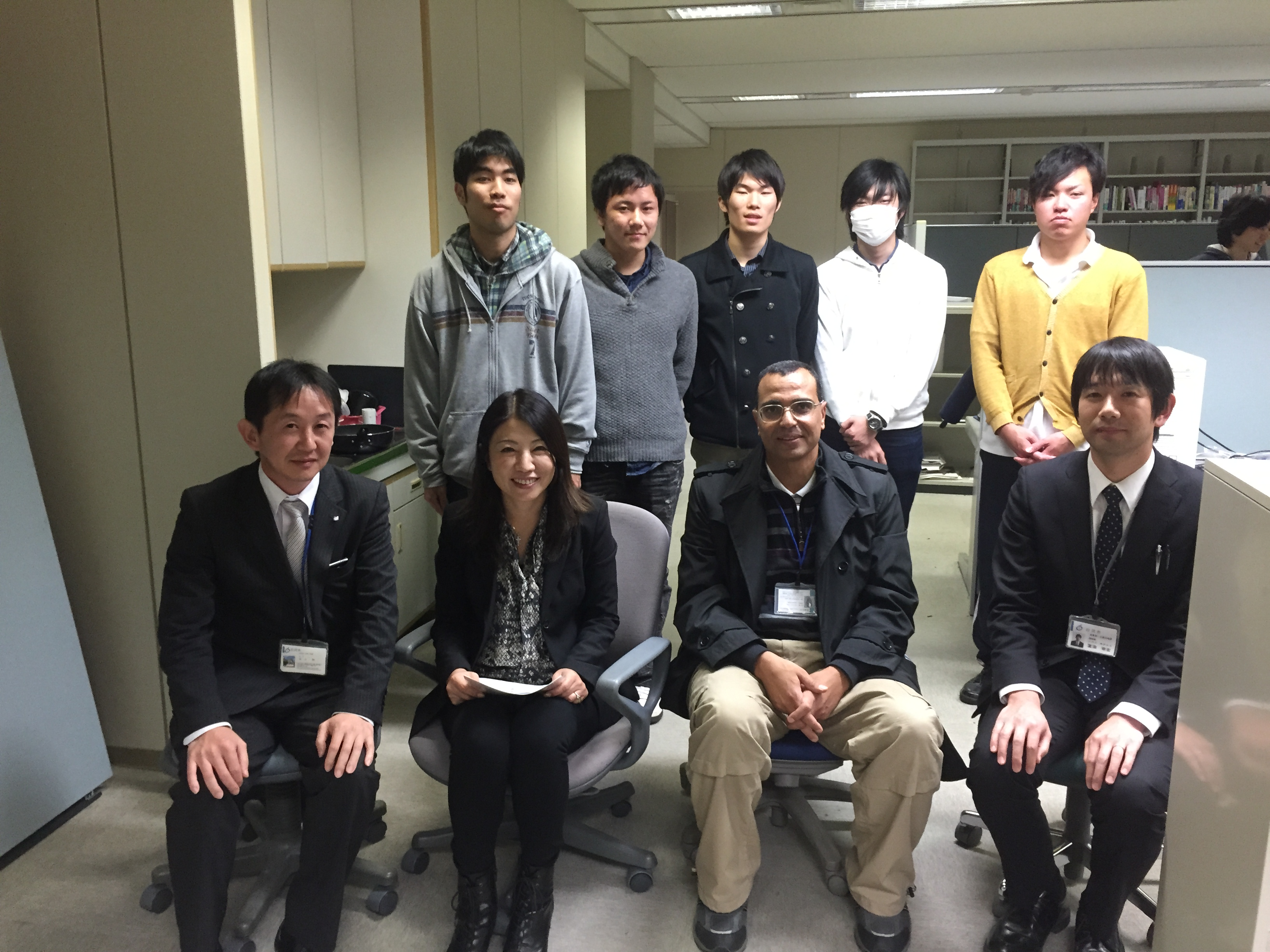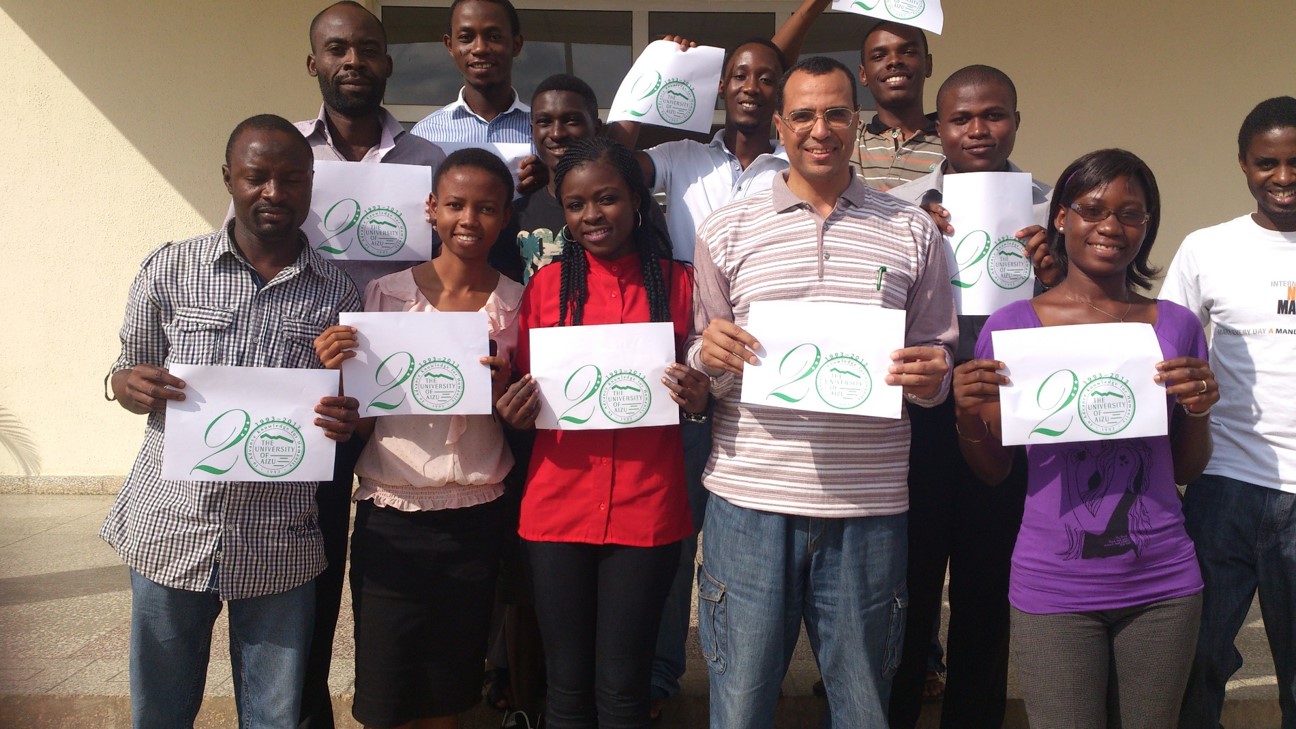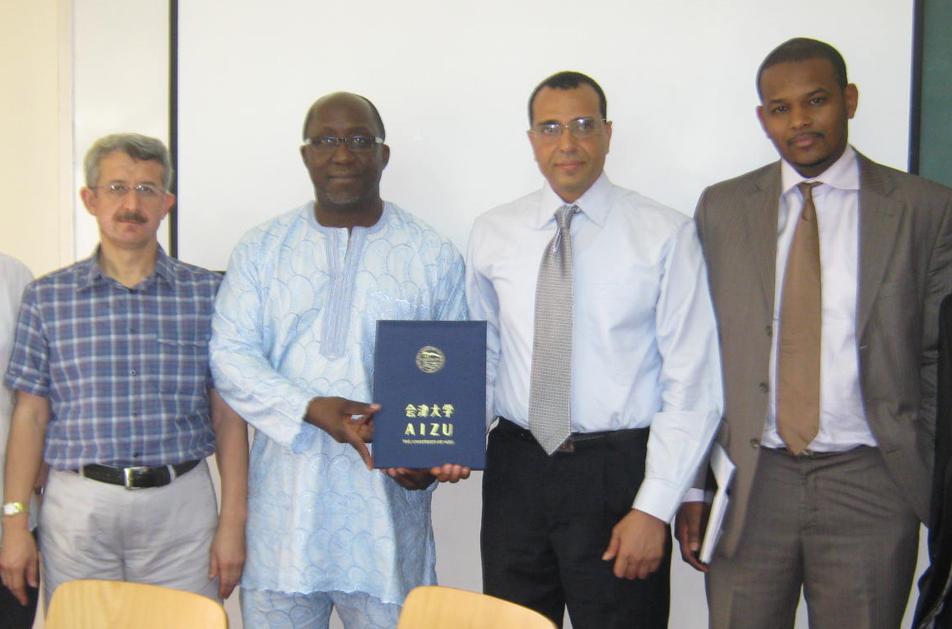Call for Book Chapters
Mobile Learning: Trends, Attitudes and Effectiveness
To be published by NOVA Science Publisher

Editor
Mohamed Hamada
The University of Aizu
Aizuwakamatsu
Fukushima, JAPAN
Schedule
Please send your submission by e-mail to hamada@u-aizu.ac.jp
(or mhamada2000@gmail.com) then you will receive instructions
about formatting and sample chapter.
Introduction
The term "mobile learning" (or m-learning for short), has different meanings for different communities, covering a range of use scenarios (including e-learning, educational technology and distance education), that focuses on the mobility of the learner through the use of mobile devices.
M-learning can be seen as the learning across multiple contexts, through social and content interactions, using personal electronic devices such as handheld computers, smart devices (e.g. smartphone and tablets), notebooks, mobile phones, etc. It reflects how society and its institutions can accommodate and support an increasingly mobile population.
M-learning is convenient in that it is accessible from virtually anywhere and at any time. Like other forms of e-learning, m-learning is also collaborative. Sharing is almost instantaneous among everyone using the same content, which leads to the reception of instant feedback and tips. This highly active process can help in improving students' performance and cut the dropout rate in technical fields. M-learning also brings strong portability by replacing books and notes with small devices, filled with tailored learning contents. In addition, it is simple to utilize mobile learning for a more effective and entertaining experience.
The challenges that face e-learning and m-learning systems come from the growth rate of students, education contents, services that can be offered and resources made available. These challenges include: optimizing resource computation, storage and communication requirements, dealing with dynamic concurrency requests, etc. Such challenges highlight the necessity of the use of a platform that meets scalable demands and cost control. This environment is cloud computing. The cloud computing environment rises as a natural platform to provide support to e- and m-learning systems.
Topics
Prospective authors are invited to submit their work in any area related to mobile learning, e-learning, cloud computing and learning technologies, learning software tools and applications designed for academia and industries.
Submissions are solicited on a broad range of topics, including (but not limited to):
Contact
Mohamed Hamada (The book editor), e-mail: hamada@u-aizu.ac.jp
(or mhamada2000@gmail.com) for any question you may have.


Mohamed Hamada
The University of Aizu
Aizuwakamatsu
Fukushima, JAPAN
Schedule
- Abstract/intention for submission: Nov. 30, 2014
- Full chapter submission: Feb. 28, 2015
- Notification of acceptance: April 30, 2015
- Camera ready version: May 30, 2015
- Tentative publication date: June 2015
Please send your submission by e-mail to hamada@u-aizu.ac.jp
(or mhamada2000@gmail.com) then you will receive instructions
about formatting and sample chapter.
Introduction
The term "mobile learning" (or m-learning for short), has different meanings for different communities, covering a range of use scenarios (including e-learning, educational technology and distance education), that focuses on the mobility of the learner through the use of mobile devices.
M-learning can be seen as the learning across multiple contexts, through social and content interactions, using personal electronic devices such as handheld computers, smart devices (e.g. smartphone and tablets), notebooks, mobile phones, etc. It reflects how society and its institutions can accommodate and support an increasingly mobile population.
M-learning is convenient in that it is accessible from virtually anywhere and at any time. Like other forms of e-learning, m-learning is also collaborative. Sharing is almost instantaneous among everyone using the same content, which leads to the reception of instant feedback and tips. This highly active process can help in improving students' performance and cut the dropout rate in technical fields. M-learning also brings strong portability by replacing books and notes with small devices, filled with tailored learning contents. In addition, it is simple to utilize mobile learning for a more effective and entertaining experience.
The challenges that face e-learning and m-learning systems come from the growth rate of students, education contents, services that can be offered and resources made available. These challenges include: optimizing resource computation, storage and communication requirements, dealing with dynamic concurrency requests, etc. Such challenges highlight the necessity of the use of a platform that meets scalable demands and cost control. This environment is cloud computing. The cloud computing environment rises as a natural platform to provide support to e- and m-learning systems.
Topics
Prospective authors are invited to submit their work in any area related to mobile learning, e-learning, cloud computing and learning technologies, learning software tools and applications designed for academia and industries.
Submissions are solicited on a broad range of topics, including (but not limited to):
- M-learning (and e-learning) platforms
- MOOC (Massive Open Online Course) and m-learning
- Cloud computing applications and utilization in m-learning
- Virtual Environments for e- and m-Learning
- Impact of e- and m-learning on the learning process
- Evaluation methods for e- and m-learning
- Implementation issues of e- and m-learning
- Applications of m-learning in higher education
Contact
Mohamed Hamada (The book editor), e-mail: hamada@u-aizu.ac.jp
(or mhamada2000@gmail.com) for any question you may have.













